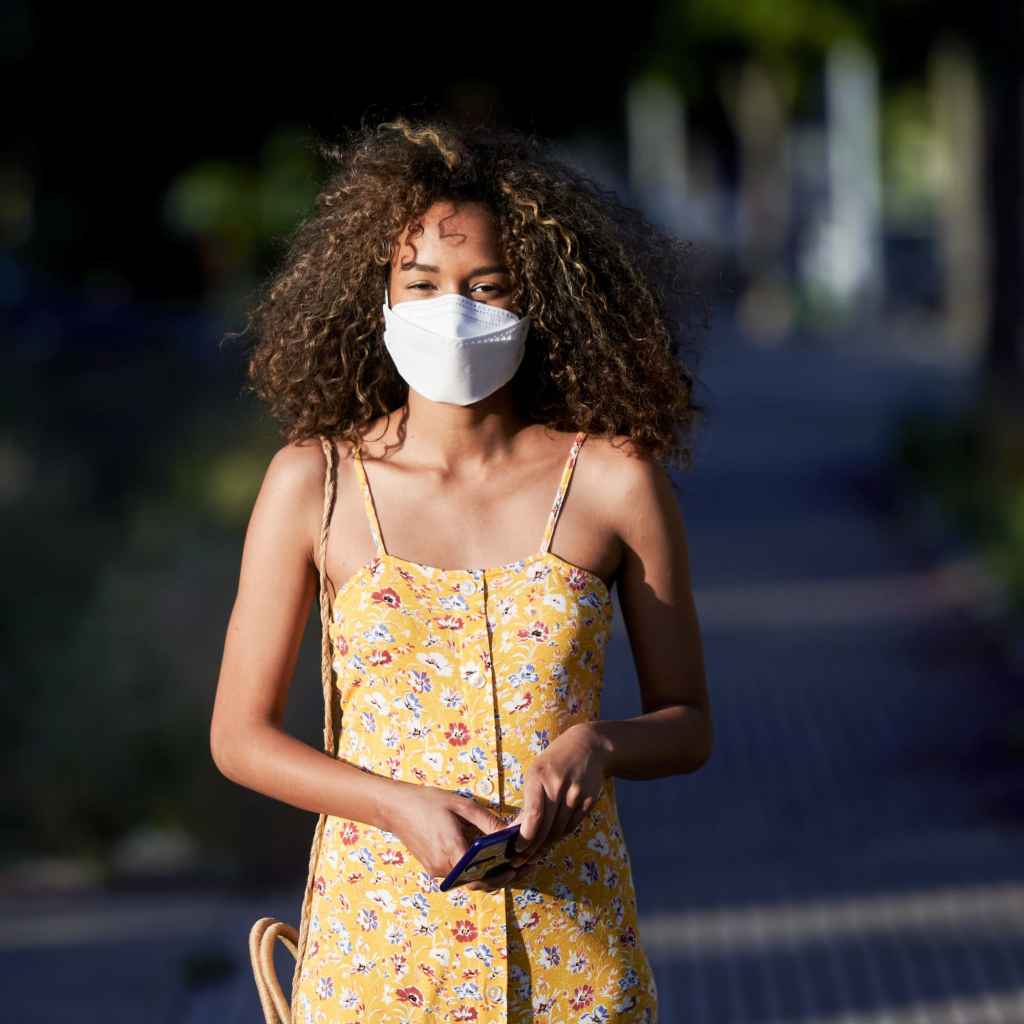Doctors, leaders, celebrities, and even the timeless Bill Nye are all banging the drum, encouraging people to wear face masks during the coronavirus pandemic. That’s because, based on current information, wearing a face mask is one of the best ways to prevent the spread of coronavirus, especially as parts of the country attempt to reopen and ease up on shelter-in-place guidelines. The Centers For Disease Control (CDC) first recommended wearing cloth face masks back in April, and the push for widespread use has only grown since.
Yet amidst all the recommendations and PSAs, sometimes we can forget the actual rationale behind face masks. It’s important to remember why we wear them, both so we can educate each others and stay motivated to strap them on ourselves.
Why Do Face Masks Prevent Coronavirus Spread?
The thing to remember is that when you wear a face mask, it doesn’t necessarily mean you’re safe from the virus – but it’s a very effective way to protect the people around you. As Stanford Health Care immunologist and infectious disease doctor Anne Liu, MD, phrased it, “Wearing a mask protects other people, and other people wearing masks protects you.”
Here’s why:
- Face masks catch respiratory droplets, which can transmit the virus. On the microscopic level, face masks act as a barrier against the respiratory droplets leaving your nose and mouth as you exhale, cough, or sneeze. These droplets are the main means of coronavirus transmission, studies suggest, and they essentially “get caught in the fibers of the mask,” said Dr. Liu. “So, the more layers there are, the better; the tighter the weave, the better.” Non-medical grade masks tend to be more porous, she noted, so some of the smaller droplets will slip through or out the sides, but they do a good job of catching larger droplets. As a recent study showed, an uncovered sneeze or cough can spray droplets an average of eight feet away; when wearing a cloth face mask, it’s 2.5 inches. Growing evidence shows that the coronavirus is airborne, making masks even more important.
- Many people transmit the virus without experiencing symptoms. The statistics vary, but Dr. Liu estimated that around half of viral transmissions come from people who show no symptoms at the time of transmission; a new mathematical model agrees. That’s different than past coronavirus outbreaks (such as SARS 1 and MERS), which “primarily spread from people who had symptoms,” Dr. Liu explained. It’s one reason why face mask recommendations are being made now that weren’t in the past, and why COVID-19 has proved so difficult to contain in comparison: people have the virus without knowing it, and are unwittingly spreading it to others. It’s in these cases that wearing a face mask is crucially important, because it greatly reduces the chances that an asymptomatic person will pass on the virus when they’re out and about.
- Masks are our best chance at ending social distancing. Given the estimates of asymptomatic cases, we have no foolproof way of knowing who has coronavirus and who doesn’t. Even if we had the capability of universal testing, there’s a often lag time between picking up the virus and testing positive, Dr. Liu said, in which the individual is able to infect others. Since we can’t identify every person with coronavirus based on symptoms or testing, the solution is to slow the spread by other means. Social distancing may be the most difficult one, and the US is proving that a country can only shut itself down for so long. “The alternative to wearing masks is that everybody physically distances until this is gone,” Dr. Liu said – and at this point, on multiple levels, another year of social distancing seems unlikely to succeed.
No one’s saying it’s fun to strap on a face mask every time you leave the house, particularly if you’re an essential worker who’s wearing one every day on the job. But right now, it can make a huge difference in terms of saving lives and getting the world back on track. “People should think of it as, ‘I’m wearing a mask to show that I care about the people around me,” said Dr. Liu, adding, “The only way we are going to be able to reduce physical distancing again is by using masks.”
If you can’t find any in stores, buy a cloth face mask online (here are 60-plus options) or make your own with this DIY hack.
POPSUGAR aims to give you the most accurate and up-to-date information about the coronavirus, but details and recommendations about this pandemic may have changed since publication. For the latest information on COVID-19, please check out resources from the WHO, CDC, and local public health departments.
Related: If Your Gym Is Reopening, Is It Safe to Go? Here’s What Doctors Say

